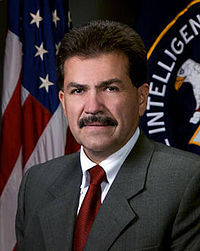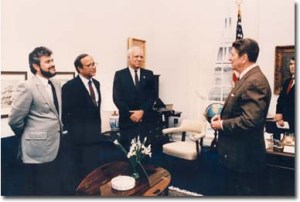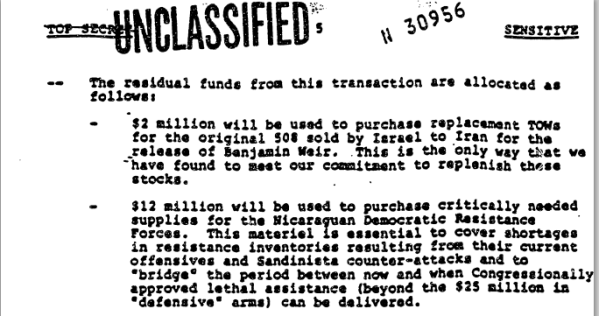It is important to realize that the government became obsessed with secrecy to preserve its institutions in the years following 9/11, as its activities became increasingly suspect. There was a re-classification campaign in 2006.
Jose Rodriguez became employee of Novitis.
Costa Rica’s director of intelligence, Mariano Figueres, announced that his government will investigate secret US programs that employed Costa Rican citizens in efforts to destabilize the Cuban government. Figueres announced the investigation in response to an August 4, 2014, Associated Press story alleging that USAID employed Costa Rican, Peruvian, and Venezuelan youths to participate in Cuban HIV prevention programs as a cover for US-sponsored anti-Cuban activism. According to interviews, the HIV-prevention ruse was called the “perfect excuse” to recruit political activists.

Jose A. Rodriguez Jr. is the former head of the CIA’s National Clandestine Service that oversaw the agency’s torture program.
The involvement of Director of National Intelligence General Counsel, Robert S. Litt, in the declassification of the Senate report is adding another layer of controversy to the already contentious declassification process. Before his current position, Litt was a private defense lawyer “who represented several CIA officials in matters relating to the agency’s detention and interrogation program.” While Senate Intelligence Committee chair Senator Dianne Feinstein (D-CA) said she had no concerns about a potential conflict of interest, Senator Mark Udall (D-CO) said he remains “concerned about who continues to lead and drive the [declassification] process.” For our part, the National Security Archive hopes that Litt’s involvement in the declassification process will embody his recent announcement urging classifiers and declassifiers to ask, “not can we classify –but should we?”
An August 25 Intercept article, using documents leaked by former National Security Agency (NSA) contractor Edward Snowden, provided a glimpse of ICREACH, the NSA’s “‘Google-like’ search engine built to share more than 850 billion records about phone calls, emails, cellphone locations, and internet chats.” Planning documents for the search engine list the FBI and Drug Enforcement Agency as “key participants,” and “has been accessible to more than 1,000 analysts at 23 U.S. government agencies that perform intelligence work.” Former NSA chief Gen. Keith Alexander developed the original framework for ICREACH in 2006 (though its roots trace back to the early 1990’s DEA-CIA project CRISSCROSS), and shares data swept up under Regan-era Executive Order 12333. As those who have followed closely know, the USA Freedom Act of 2014 introduced by Senator Leahy (D-VT) would focus on telephone record collection under Section 215 and FISA Court reform, not information vacuumed up by EO 12333.
The Department of Veterans Affairs’ inspector general office released a report confirming that hospital delays and “poor care” led to deaths of numerous veterans in a Phoenix hospital. Earlier this year a Tampa Tribune reporter submitted a FOIA request for the names of other VA hospitals were patients died due to delays, but was denied. VA officials refused to disclose any documents responsive to his request by citing the b(5) “predecisional” FOIA exemption, and stating that the documents were “preliminary” communications and could therefore be withheld. Voicing support – by calling your Senator or writing an op-ed for your local paper, for example – for the FOIA Improvement Act of 2014 would help end the increasing misapplication of the b(5) “withhold it because you want to” exemption, recently used not only to hide wrongdoing at the VA, but also to conceal unflattering Department of Justice diversity studies and histories of the Bay of Pigs invasion, and would go a long way to force agencies to finally adopt President Obama’s mandate to act with a “presumption in favor of disclosure.”
The FBI cancelled plans to award a $500 million sole-source contract to Motorola Solutions in the wake of protests by other contractors. One of Motorola’s competitors, Harris Corporation, filed an official complaint to the Government Accountability Office regarding the no-bid award to Motorola Solutions, specifically complaining that the FBI’s claim that Motorola’s software was proprietary and prevented it from interacting with other systems was untrue. A McClatchy News investigation earlier this year further detailed “how Motorola has dominated the industry for decades, building deep loyalty among law enforcement and firefighting agencies and benefiting from biased contract specifications and other forms of favoritism from contracting officials,” prompting House Democrats to send a letter to the Department of Homeland Security’s inspector general requesting an inquiry into the government’s alleged favoritism towards Motorola; the DHS IG has yet to announce whether an audit or an investigation will be conducted.
World War II’s Manhattan Project to develop the world’s first atomic bomb generated more than 1,500 leak investigations, roughly 200 sabotage cases, and about 100 espionage cases. This information is now available thanks to the Department of Energy’s posting of the most recent declassified volume of the official Manhattan District History; all 36 volumes of the history are now declassified and available online.
The Wilson Center’s Cold War International History Project has posted a fascinating dossier of Stasi documents detailing East German aid to the North Vietnamese security apparatus from 1965 until the end of the Cold War. The 13 documents for this “generally unknown” aspect of Soviet bloc aid to Hanoi are all available here.

President
Reagan meets with Contra leaders in the Oval Office. Oliver North is at
far right. When this photo was officially released North’s image was
cut out.
To celebrate the release of Malcolm Byrne’s latest book, this week’s #tbt document pick is a throwback to a 2011 Archive posting highlighting the ‘top 5’ Iran-Contra historical documents, specifically the Top Secret/Sensitive April 4, 1986, Oliver North Memorandum, “Release of American Hostages in Beirut,” which is the main piece of evidence to survive North’s infamous document “shredding party,” and spells out the plan to use “residuals” from the Iran arms deals to fund the anti-Sandinistas.
Happy FOIA-ing!


No comments:
Post a Comment